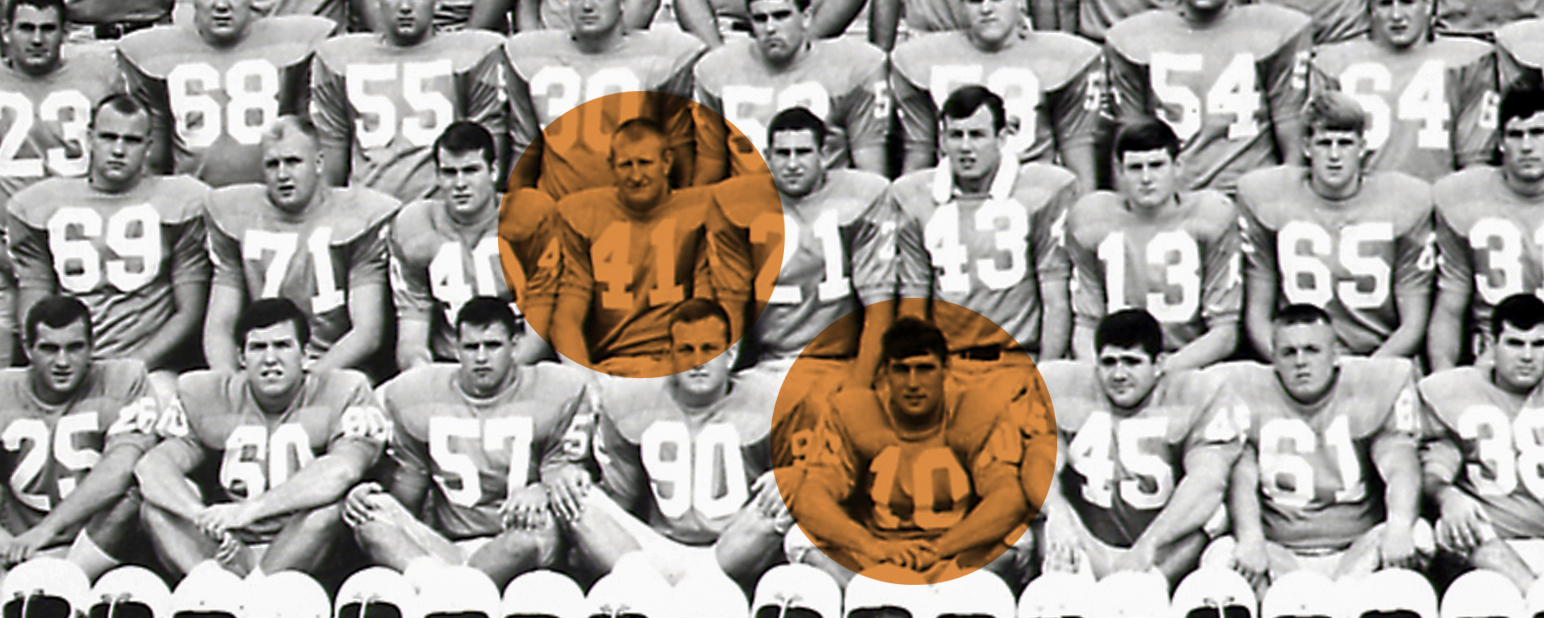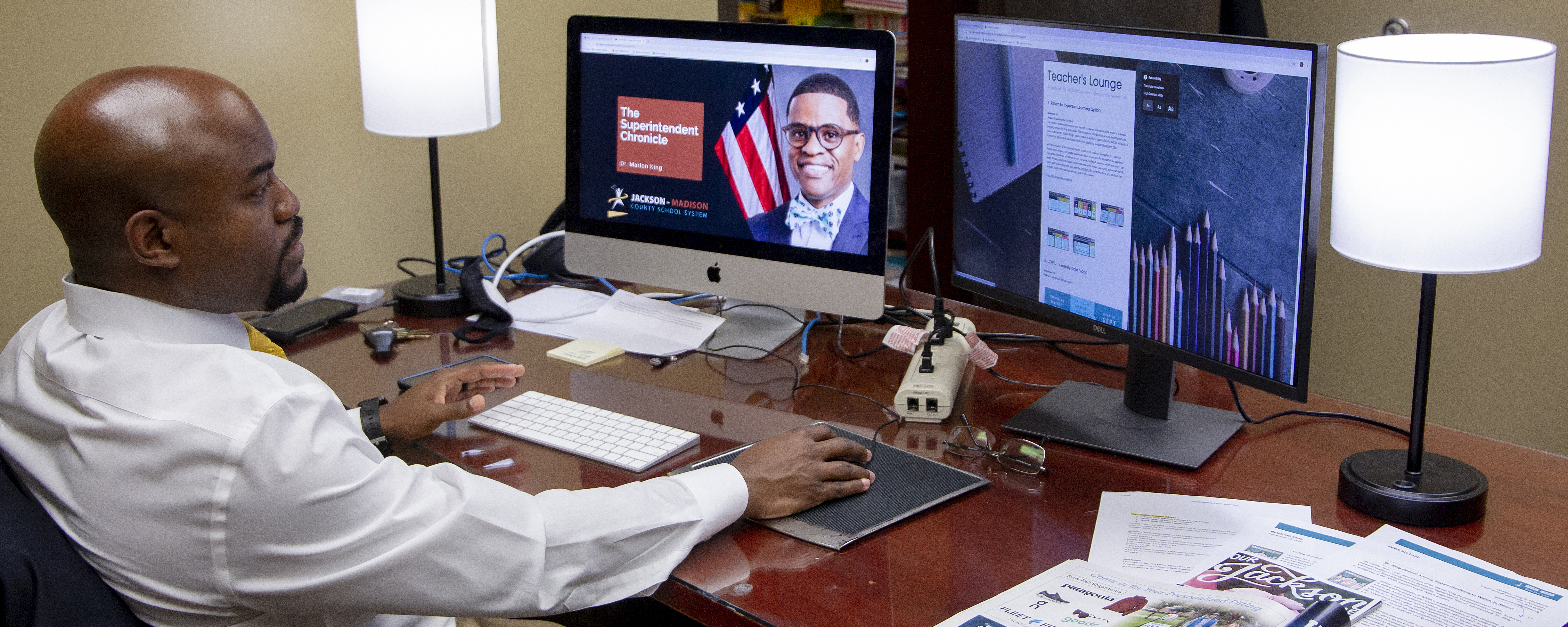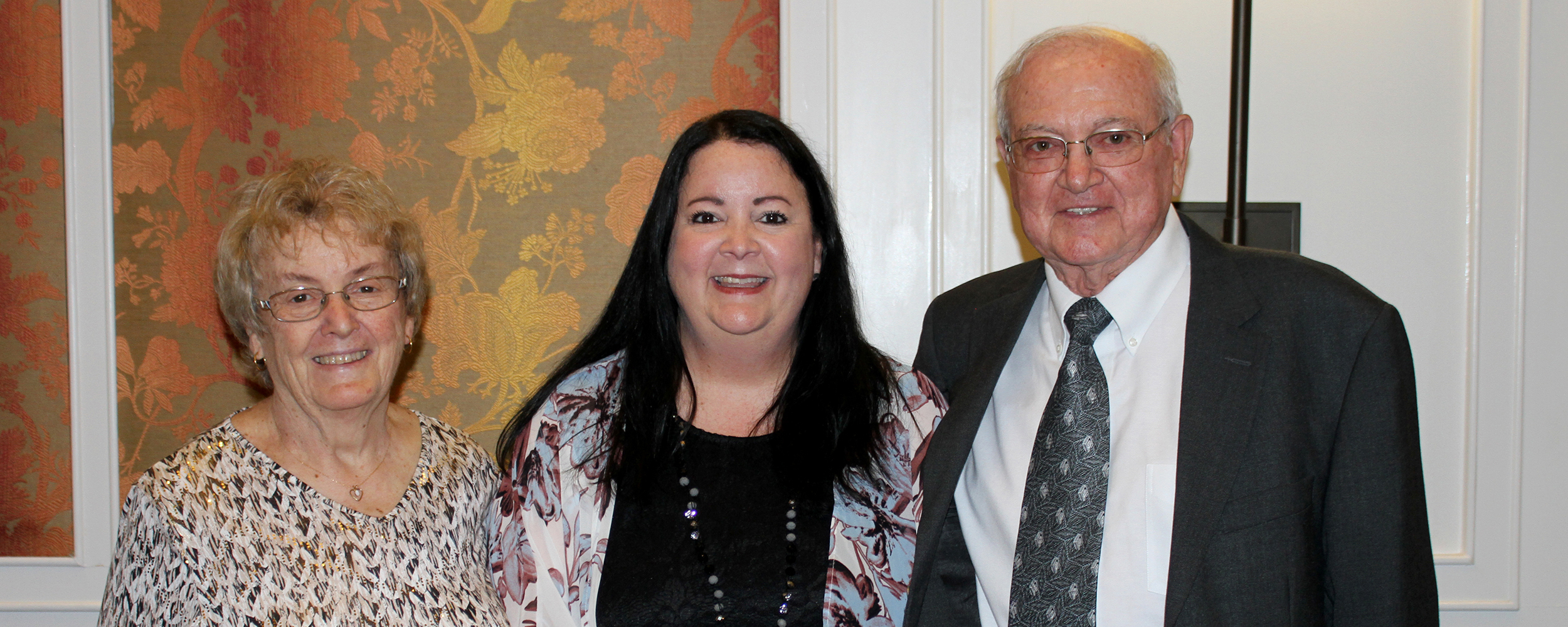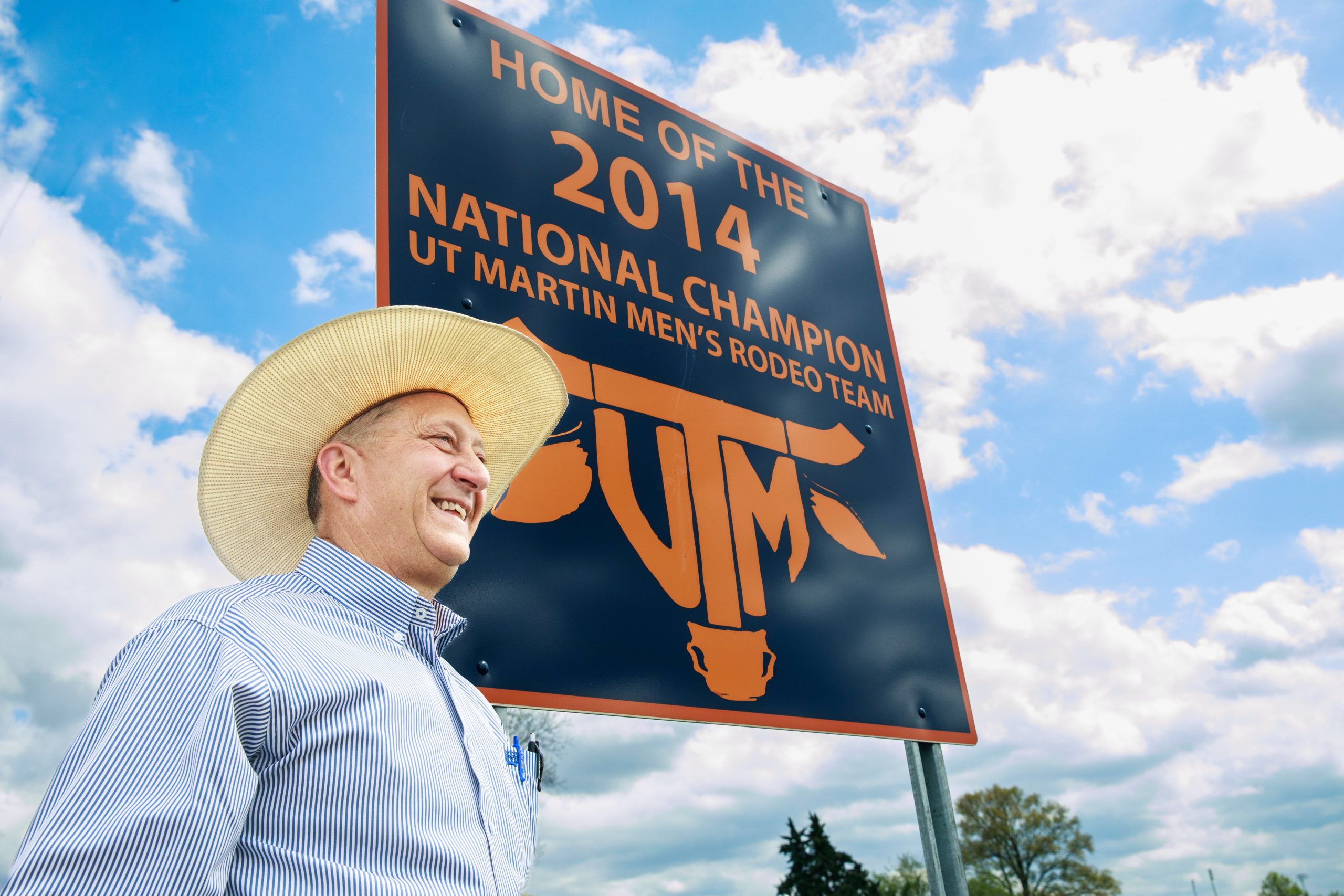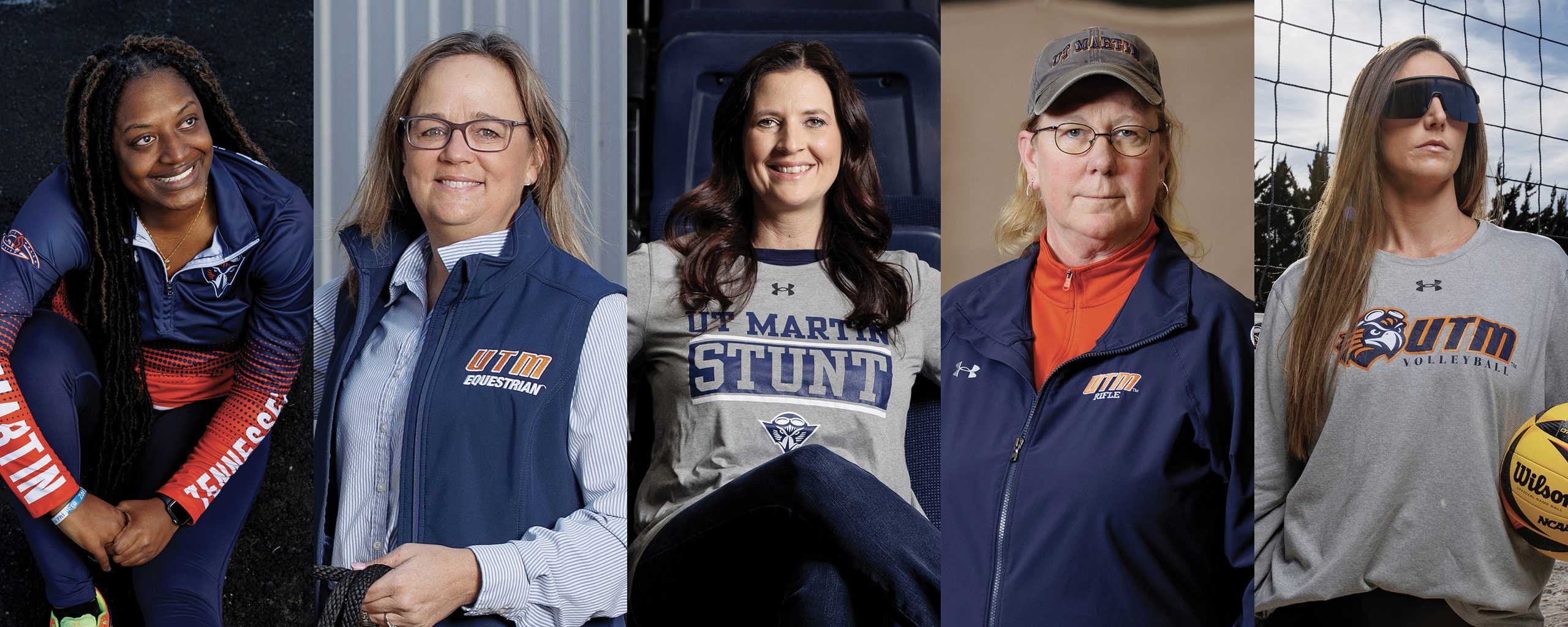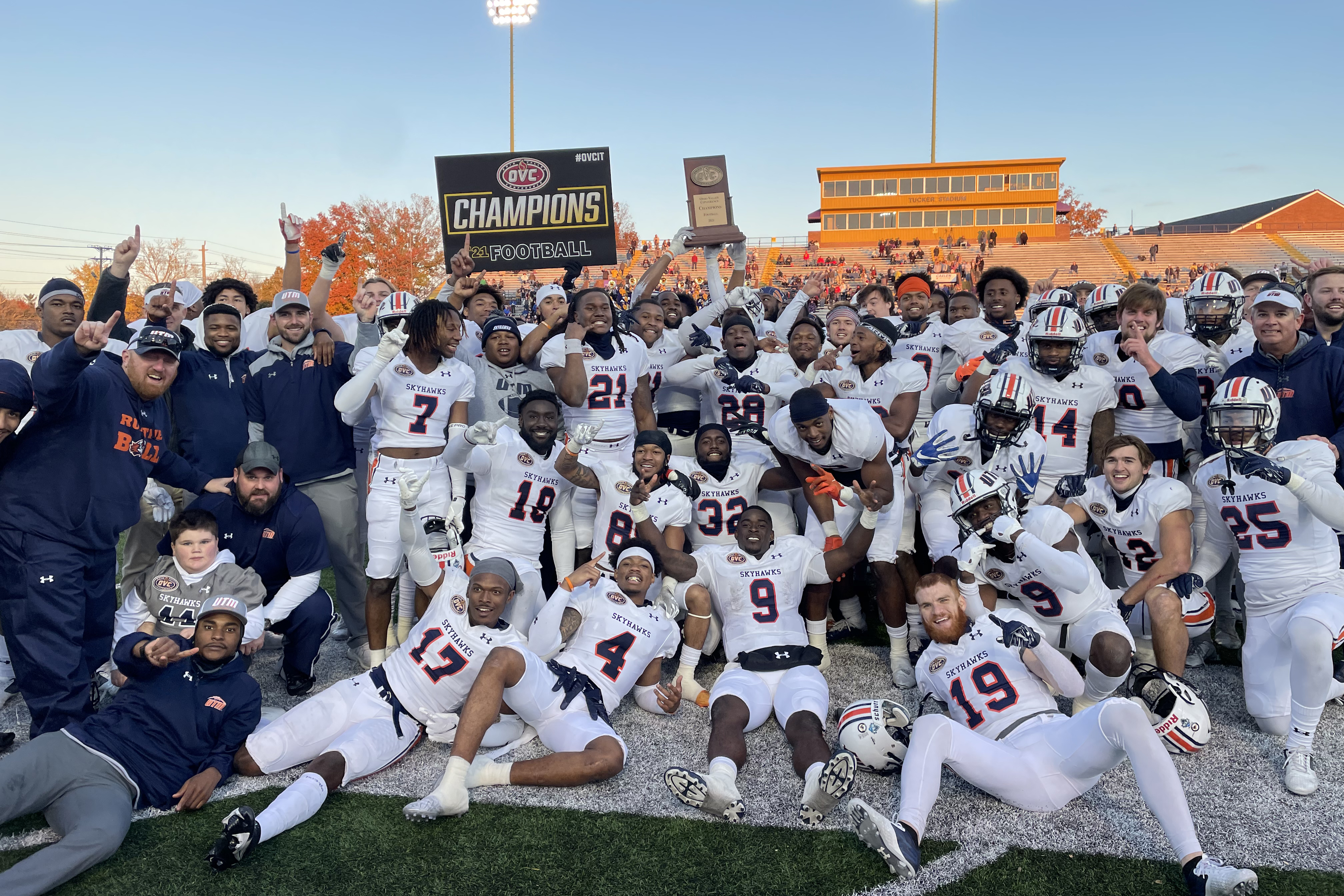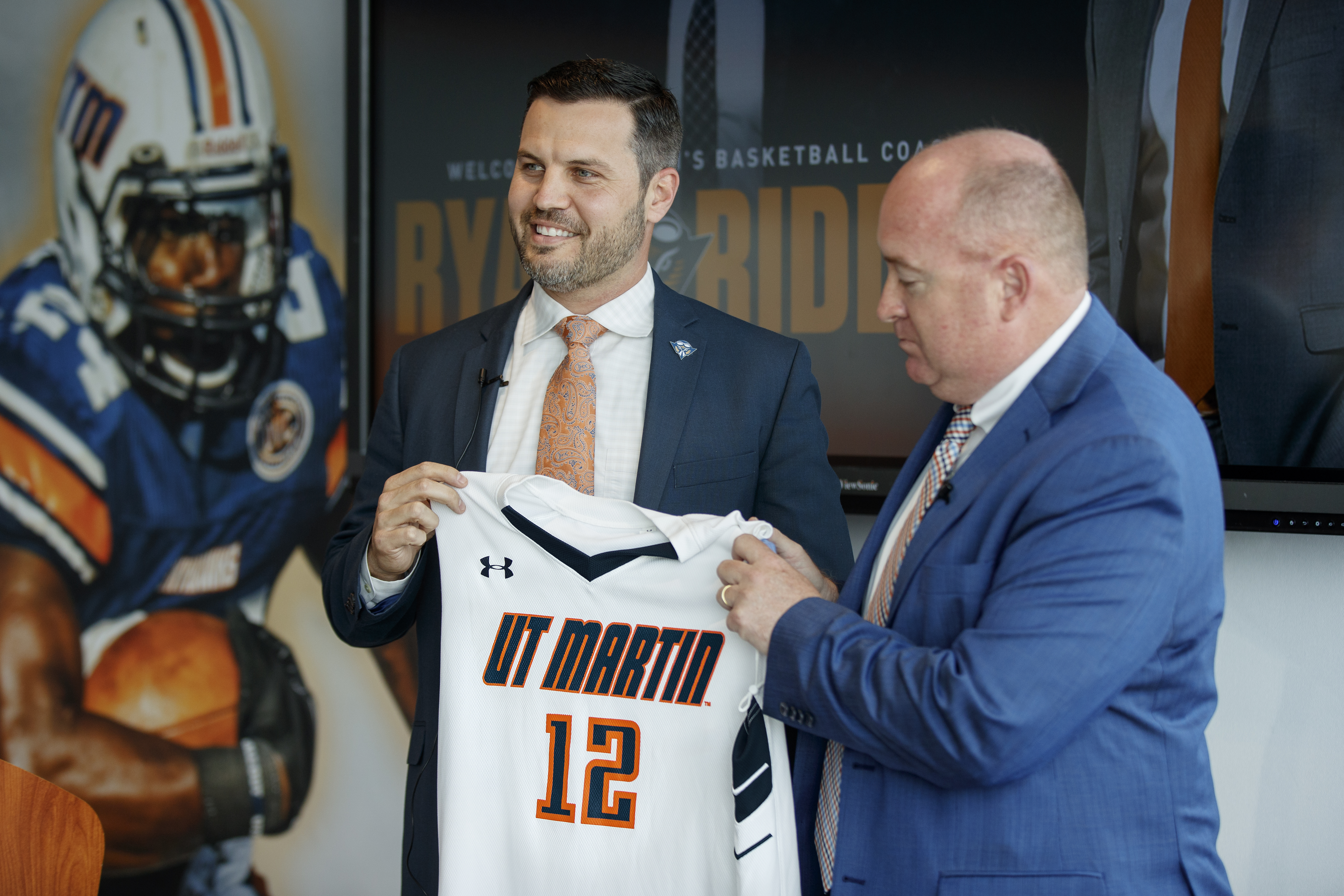Years later, bond remains strong for UTM football legends
Story by Bud Grimes
It’s a friendship formed as teammates on the UT Martin football gridiron in the mid-1960s. Today Allan “Buckwheat” Cox (’69, ‘72) and Larry Shanks (’68, ‘73) remain close friends, separated only by the driving distance between Shanks’ Union City home and the Tennessee State Veterans’ Home in Humboldt where Cox has battled health issues in recent years. Although both are retired from the rigors of coaching, every day is still game day for Shanks as he lends a hand to his lifelong teammate.

Their backgrounds couldn’t be more different. Cox was raised in a military family, which eventually took him to Ft. Walton Beach, Florida, when his father was stationed at Eglin Air Force Base. Another transfer would move his family again, but Cox stayed to complete his football career at Choctawhatchee High School, a program that boasts five professional football players. Shanks was raised in Middle Tennessee and was a star football player at McEwen High School in Humphreys County. Football brought them together at UT Martin, an era that included a victory in the 1967 Tangerine Bowl, which is arguably the greatest team achievement in the university’s football history. Both amassed notable personal success during and after their playing days and are both members of the university’s Athletics Hall of Fame.
Cox quarterbacked for four seasons and threw for 2,934 yards from 1965-68, good for 10th all-time in UT Martin history. He was ninth in both career passing attempts and career pass completions, and he also threw 27 touchdown passes. Following his graduation, Cox joined the U.S. Army and served with the 101st Airborne Division in Vietnam where he earned a Bronze Star with valor. He returned to UT Martin from military service and earned a master’s degree and then to Murray State to complete his specialist hours above the master’s before beginning a long and successful coaching career at multiple schools. He is perhaps best known for his time at Paducah Tilghman where he led teams to the Kentucky state high school 3A championship game five times and a state title in 1985.

Shanks also played from 1965-68, is the seventh all-time rusher in UT Martin history and is tied for seventh with 10 rushing touchdowns in a single season in 1967. He led the team in rushing in 1966 and 1967 and also holds the distinction of playing both offense and defense during his playing career. Shanks also enjoyed a decades-long coaching career, which included a successful tenure at Union City High School, a return to UT Martin as an assistant and a 2009 state championship at Paducah Tilghman where he was defensive coordinator. Both are heroes to the hundreds of young men they’ve coached.
Fast forward to Nov. 8, 2019; Shanks is making one of his regular visits to check on his friend. On this November day, members of the UT Martin Skyhawk Veteran’s Association are also visiting the Tennessee State Veterans’ Home to thank residents for their service in recognition of Veterans Day, providing the perfect opportunity for the UT Martin football greats to reminisce. Cox, largely confined to a wheelchair, brightens up quickly and trades barbs with Shanks as the two relive past glory.

“One thing about it, most players to be good, you got to be a little cocky, in particular as the quarterback,” Shanks said. “He (Cox) was as cocky as they come.” Cox remembered that UT Martin and Tennessee Sports Hall of Fame coach Bob Carroll (‘54) allowed his quarterbacks to call the plays, and Cox knew how to manage a game. Shanks credits Cox for calling his number and handing him the ball often during the two years that he led the team in rushing. “So, see, he helped me out. He’d call me,” Shanks said. “I wouldn’t have been the leading rusher if he hadn’t called my name.”
They remembered big games under Carroll with familiar UT Martin rivals such as Jacksonville State, Delta State and Troy State, but the iconic game from their playing days was the matchup with West Chester State of Pennsylvania in the 1967 Tangerine Bowl. Cox didn’t start the game, but he entered in the second quarter during a critical point. “So, Buck comes in, and he ran a little old bootleg and hit Gary Capers (’68) … on the post corner,” Shanks said. “We score the first play he come in.” The team went on to win the first bowl game in UT Martin history by a score of 25-8.

Amid the football memories, Cox and Shanks sparred with each other about who was the best athlete and who played at the best high school. At one point, Shanks said he planned to take Cox to see a statue that supposedly stands at the McEwen city limits and reads “Home of Larry Shanks.” Cox quickly declared that if the statue exists, it must be made of plastic. Their brother-like relationship is evident amid the storytelling and laughter. However, the conversation’s tone became more serious when Shanks told about Cox’s military service and his wartime accomplishments.
The Vietnam War posed a reality check for Cox as he neared graduation, and when he realized that he would be drafted, Coach Carroll advised him to enroll in advanced ROTC. “From that time on, the military changed my life,” Cox said. “I went to infantry basic school. Of course, playing ball and everything, it gave me an infantry MOS (Military Occupational Specialty), which meant I was going to be a platoon leader.” Stationed at Phu Bai Combat Base near the Demilitarized Zone, the former border between North and South Vietnam, Cox led his men during dangerous combat operations. At the age of 22 and the oldest man in the platoon, Cox achieved maybe his greatest military accomplishment when his time in Vietnam ended: “He came out of there, and he never lost a soldier in his platoon the whole time he was over there,” Shanks said. “They all came back home – alive.”
Subsequent years saw the former teammates leave their respective marks as successful football coaches, and both credit their players for the success they earned. “I had great kids, and they loved each other,” Cox said. Discipline anchored their coaching philosophies, which reminded Shanks of once seeing Tilghman players digging weeds from the football field on their hands and knees using screwdrivers. “I didn’t want any weeds on that field,” Cox said, but Shanks picked up on the larger purpose, which was to build team discipline: the kind of discipline needed to win football games and succeed in life.
The memories and successes for both men circle back to a special time in UT Martin football history and Coach Carroll who helped to lay the foundation for a lasting friendship.
“I just appreciate all the things that he (Carroll) did and all,” Shanks said. “We had a special group of players.”
More importantly, a bond forged on the football field remains strong for this history-making backfield duo.

